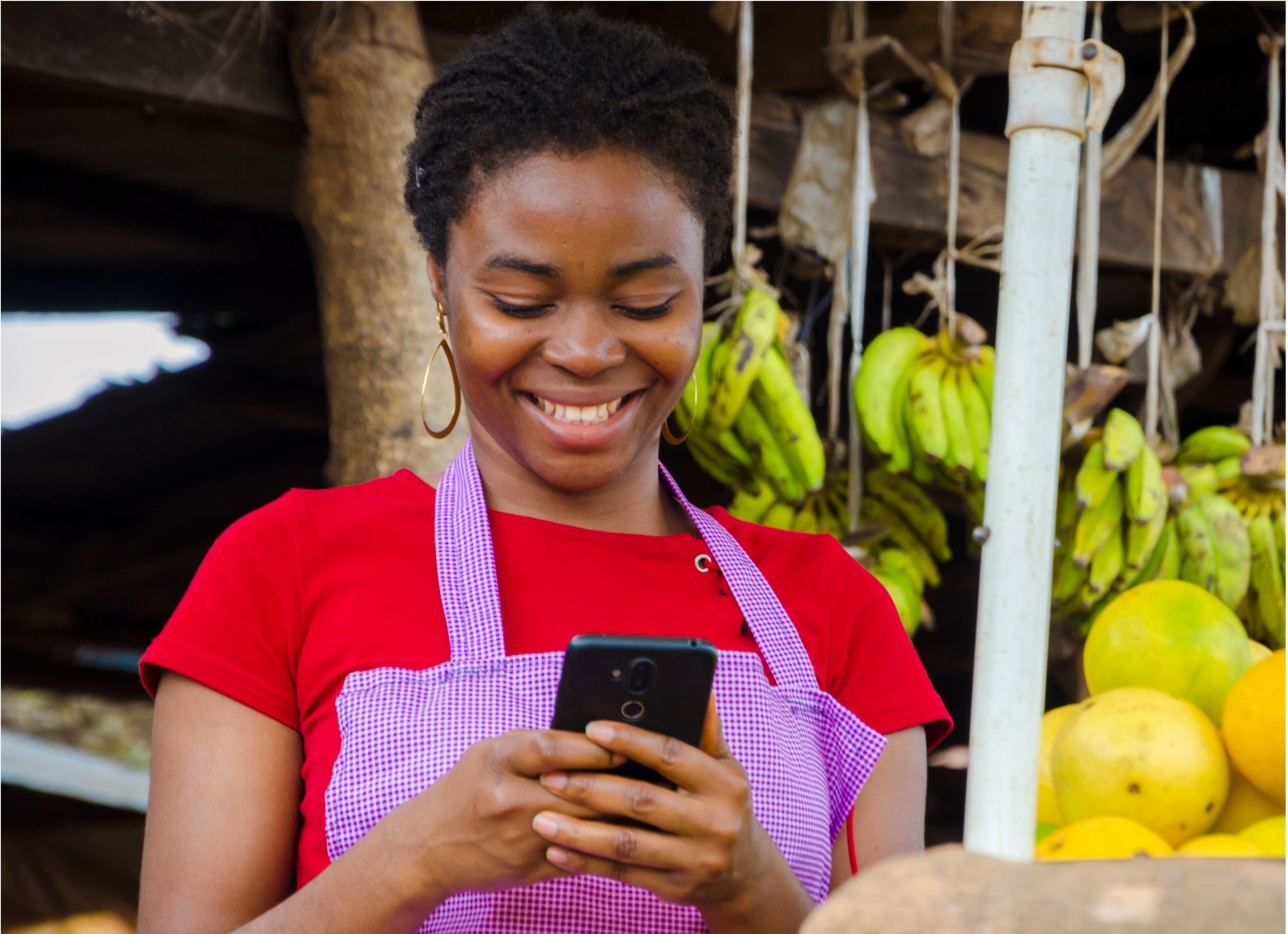The term ‘digital divide’ highlights the significant barrier to progress, particularly for women in Africa. This divide — reflected in the stark disparity where women lag behind men by at least 10 percent in internet access across 22 countries — highlights the urgent conversation about digital gender inequality.
Smartphones could very well be the key that unlocks this door to equal opportunity. However, it’s increasingly clear that addressing the gender digital divide requires more than mere access to technology. It demands a cultural transformation, inspired by technologically and educationally empowered women.
The Impact of the Digital Divide on African Women
Variables like female literacy, financial dependence, and entrenched cultural norms are all key contributors to the gender digital divide. Indeed, women with only primary education or less are disproportionately affected by a lack of internet access compared to those with higher educational attainment.
Additionally, the shadow of financial constraints looms large, precluding many women from participating in the digital shift that is transforming societies.
Cultural norms, which have long dictated traditional gender roles, further exacerbate this divide. However, a gradual shift in attitudes toward gender roles, powered by the internet and social media, is taking root in Sub-Saharan Africa. With digital inclusion comes many economic benefits, empowering women to create, innovate, and enrich their communities.
The urgency to close the gender digital divide has never been more acute. By 2030, an estimated 230 million jobs in Sub-Saharan Africa will demand digital competencies. This underscores the necessity for efforts like the World Bank’s commitment to facilitating affordable, inclusive internet access, and the African Girls Can Code Initiative, which seeks to integrate IT, gender, and coding in national curricula.
Using Technology to Reduce The Digital Divide
To effectively close the gender gaps in technology, the industry must tailor its approach. Gender-specific policies and programs are essential, aiming to enhance digital literacy and to escalate access to crucial technological tools.
These mandates operate as a vehicle for change, driving toward gender digital divide amelioration and setting a precedent for inclusive practices. By empowering women with the tools and know-how of information technology, an ecosystem that provides access to smartphones can, therefore, catalyze the potential for enriched education, bolstered economic self-reliance, and an egalitarian community ethos.
Successful initiatives are already taking place, such as the aforementioned African Girls Can Code Initiative–, which is helping hundreds of young women to overcome traditional gender roles and redefine their futures. Similarly, with buy-in from countries like Rwanda, the Generation Equality Forum actively campaigns on the need to close the digital divide for women, ensuring that gender-transformative solutions reach the hands of those in marginalized communities.
Initiatives like Amref Health Africa’s Leap, Jibu, and eCampus digital training platforms have already made remarkable headway, demonstrating how sustained, targeted actions can make healthcare more accessible to women and girls.
However, the industry as a whole needs to acknowledge the instrumental role of education in curtailing the gender digital divide. It’s clear that information technology for women is non-negotiable for Africa’s continued growth. It’s vital that every African woman who engages with the digital world feels empowered, valued, and, above all, seen.
Smartphones as a Tool for Empowerment
Smartphones have emerged as more than just communication devices and are helping to reduce the digital divide and are improving the lives of the most vulnerable populations. For many African women, these devices serve as gateways to essential information, facilitating everything from skill acquisition to health awareness.
Enhanced Access to Financial Services
Mobile money, facilitated by smartphones, significantly boosts women’s access to financial services in Africa. This technology has enabled women to more easily engage in financial transactions, access microfinance loans, and manage their savings, compensating for the lack of traditional banking infrastructure.
The convenience and security of mobile money have particularly empowered women entrepreneurs by providing a more efficient allocation of labor
Improved Educational Opportunities
With a lack of available vernacular content, smartphones serve as a gateway to a wealth of information and educational resources. Women in Africa can access online courses, educational apps, and reading materials published in local languages through their smartphones.
This access is crucial for self-education and acquiring new skills, which can lead to better employment opportunities and economic independence. The availability of educational content related to health, rights, and economic activities further empowers women to make informed decisions about their lives and families.
Increased Health and Wellbeing
Access to smartphones enables women to seek and receive important health information, including reproductive health, nutrition, and childcare. Apps and text services provide advice, reminders for medical appointments or medication, and platforms for consulting healthcare professionals remotely.
This access is particularly transformative in rural or underserved areas where healthcare facilities may be scarce or difficult to reach. Consequently, smartphones can lead to better health outcomes for women and their families.
Empowerment through Social Connectivity
Smartphones connect women to their communities and the wider world, allowing them to build networks, share experiences, and gain support. Social media platforms and messaging apps enable women to stay in touch with family and friends, join support or interest groups, and participate in community discussions. This connectivity is vital for social inclusion, emotional support, and collective action among women facing similar challenges, or seeking to advocate for their rights and wellbeing.
Greater Economic Opportunities & Independence
The combination of financial services, educational resources, health information, and social connectivity provided by smartphones contributes to greater economic opportunities for women. By facilitating entrepreneurship, offering remote work opportunities, and enabling women to market their skills or products online, smartphones can lead to increased incomes and financial independence.
This economic empowerment is a crucial step towards gender equality, as it allows women to contribute to their households’ economies, make financial decisions, and invest in their and their children’s futures.
Nearly 70% of African internet traffic stems from mobile devices, yet women are 30% less likely to own a smartphone compared to their male counterparts in sub-Saharan Africa. Despite positive momentum, women are still significantly more likely to be without access.
The industry’s focus, therefore, should remain on eliminating this gender digital divide through advocacy and targeted initiatives, such as mobile device financing, that promote mobile phone ownership among women. By facilitating women’s access to smartphones, the industry underscores its dedication to accelerating digital fluency and engendering a culture where women are significant contributors and benefactors of a digitally inclusive Africa.

